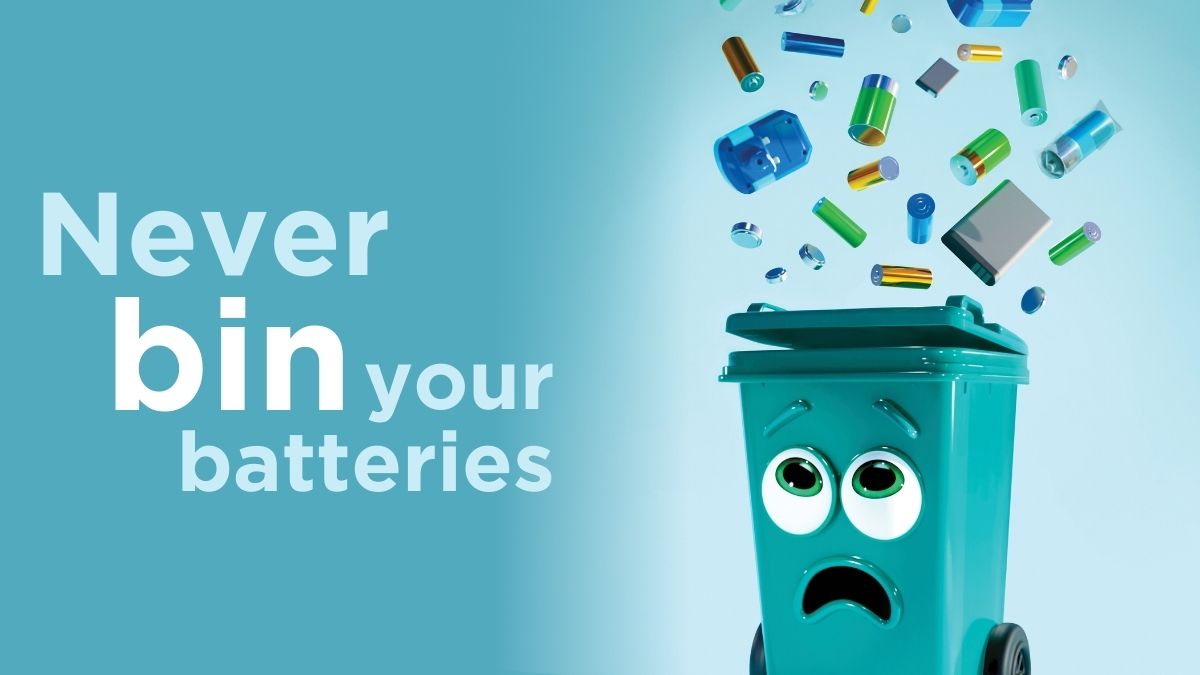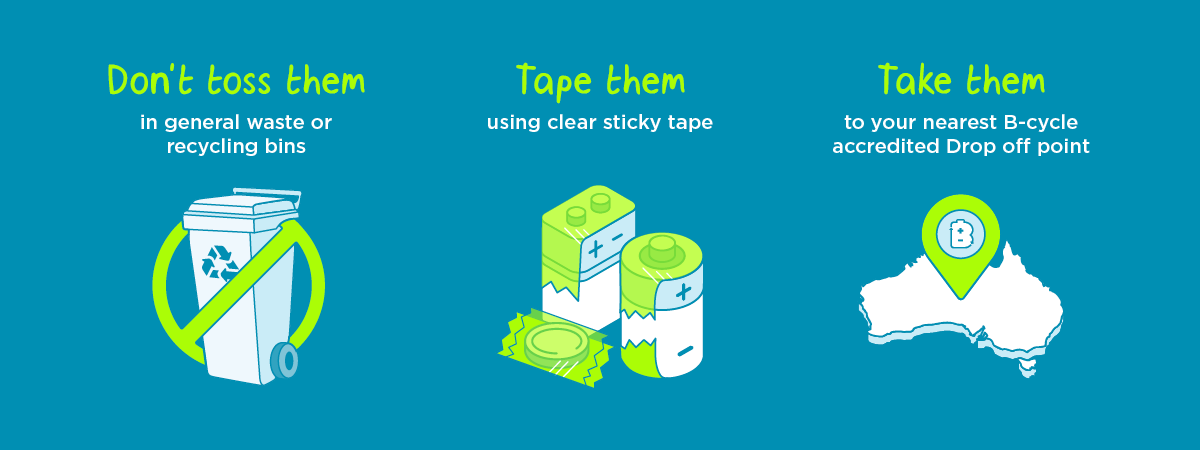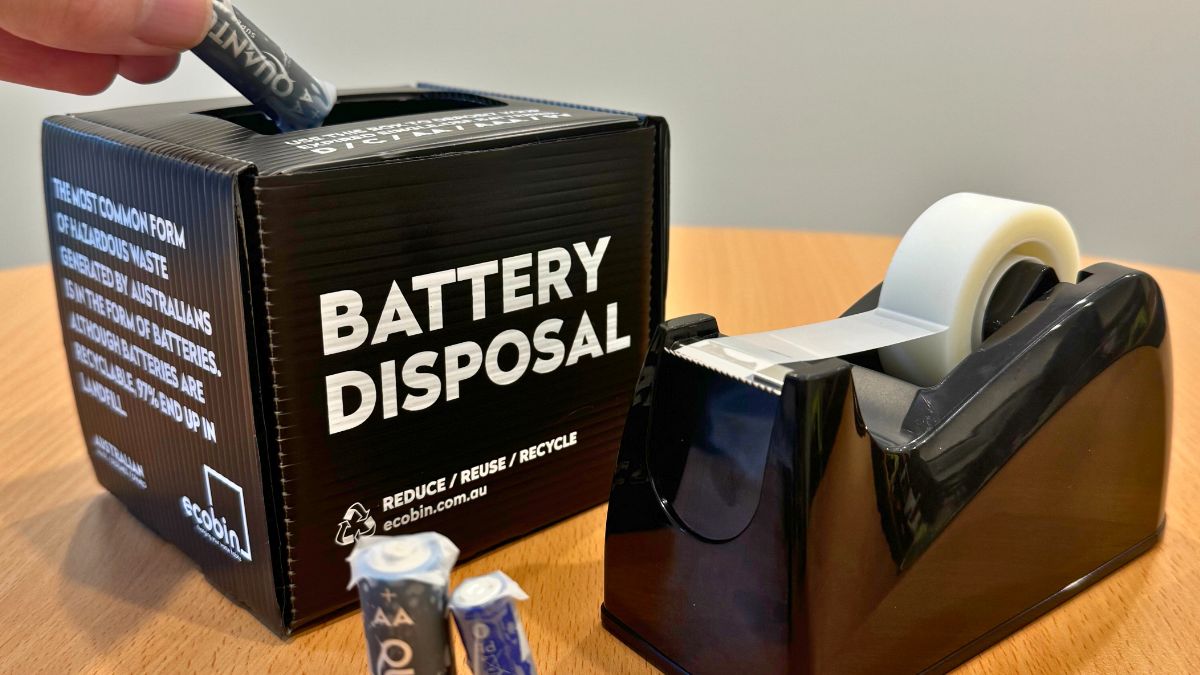
Aug 13, 2024

Batteries power our lives. From the TV remote to the latest gadget, we rely on these little energy packs every day. But what happens when they run out of power? Tossing them carelessly can lead to all sorts of trouble, so let's talk about how to dispose of them safely.

Batteries might look harmless, but inside, they’ve got some potentially dangerous chemicals like lead, cadmium, mercury, and lithium. If these chemicals leak out (and they will, if you just chuck them in the trash), they can cause all sorts of environmental messes. We’re talking contaminated soil, polluted water, and even fires in landfills and collection trucks. There are an estimated 5.7 MILLION used batteries in households across Australia with the potential to cause serious harm.
Used batteries, especially small button batteries, are a safety hazard for children. If children ingest or insert button batteries they can cause severe internal burns.
In Australia, an estimated 20 children PER WEEK present to a hospital emergency department suspected of having ingested or inserted a button battery. Children aged 0-5 years are particularly vulnerable. Keep new and used batteries out of reach of young children, and be sure to tape them using clear sticky tape before you take them for recycling.
Before you send your batteries off, take a few simple steps to keep things safe:
Credit to B-Cycle.
No Bonfires, Please: Burning batteries is dangerous and harmful to the environment. Recycling is the way to go!
Not all batteries are created equal, and neither are their disposal methods.
Single-Use Batteries (Alkaline, Zinc-Carbon)
Rechargeable Batteries (Lithium-Ion, Nickel-Cadmium, Nickel-Metal Hydride)
Button Cell Batteries
Car Batteries (Lead-Acid)
Recycling batteries in Australia is easier than you might think. Here’s where to go:
B-Cycle: This handy initiative partners with big names like Woolworths and Bunnings to set up battery drop-off bins. Just pop in, drop off, and feel good about saving the planet.
Local Council Programs: Many councils offer battery recycling services—either through household waste facilities or special events. Check with your local council to see what’s available.
At WM Waste, we're all about making it easier for everyone to do the right thing, which is why we’ve placed battery disposal bins from Ecobin in our workplace (like the one pictured below). Our staff can now easily drop off their used batteries at work, knowing they’ll be recycled properly. It’s a small step that makes a big difference, and we encourage you to consider doing the same in your home or workplace.

Setting up a battery disposal bin at home or in the office is a simple yet effective way to ensure those old batteries don’t end up in landfill. Just find a sturdy fire-resistant container, label it clearly, and let everyone know where they can drop their used batteries. When the bin’s full, take it to your nearest recycling point.
Remember to NEVER throw batteries into general waste, recycling or skip bins. Any battery that holds a charge can spark and cause a fire. Lithium batteries are particularly dangerous. If crushed inside a collection truck they can self-ignite and cause explosive fires.
If you are hiring a skip bin from WM Waste, ensure you remove batteries from household items like children's toys or power tools before you put them in the bin. When you hire a bin, make sure you check what can be disposed of in the skip bin.
Disposing of batteries safely doesn’t have to be a chore. With a little bit of effort, you can help keep Australia’s environment safe and sound.
With credit to B-Cycle for some of the images and statistics featured on this webpage.
© 2026 WM Waste Management Services | All Rights Reserved